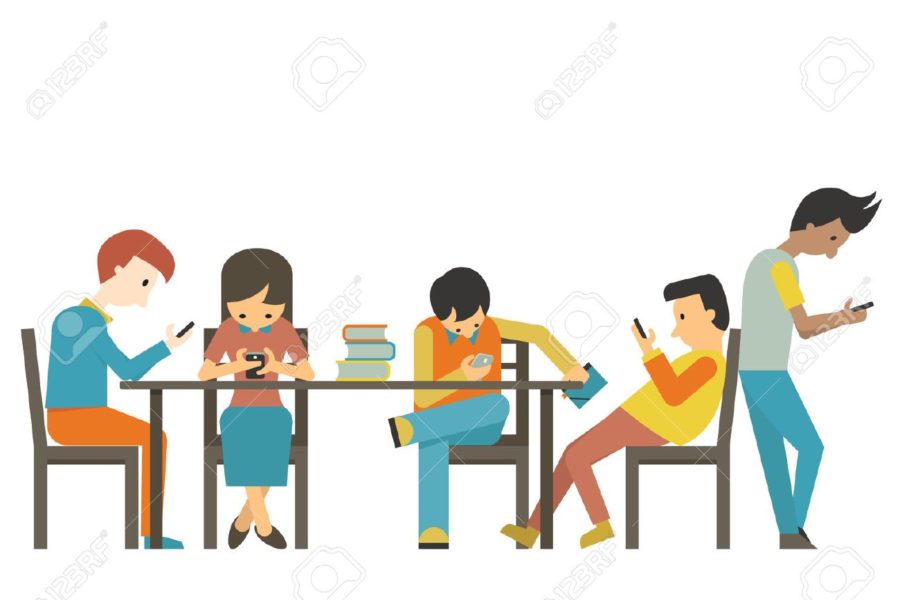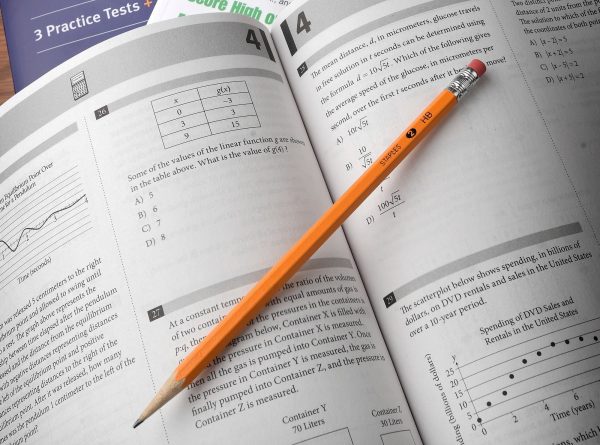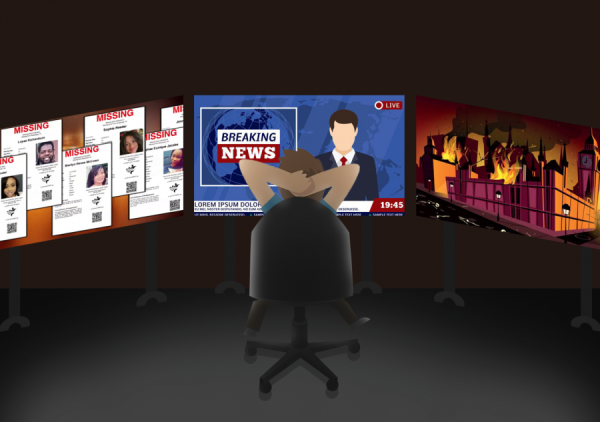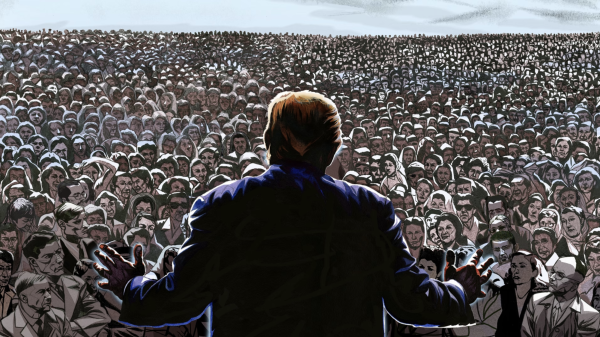Life Without Phones?!
November 27, 2017
Today, everyone uses technology for school, work, entertainment, communication, and so much more. Cell phones, televisions, Kindles, iPads, iPods. The list goes on. Today, phones can do anything: make a phone call, catch up on current events, check social media, watch a popular TV show, and listen to music. You probably use your phone so much that you can’t even imagine what life would be like without it. So much homework and other school-related things are online. If you don’t have Internet access at home, then getting assignments accomplished must be difficult. Especially now that we all have our own Chromebooks, technology makes a significant impact on the way we learn and even the way we live. With that said, what would your life be like without technology?
Well, first, let’s take a minute to think about what we do with our phones. Social media, probably, is a huge reason why we use our phones. Social media can be fun, entertaining, and even informative if it’s used properly. However, it can also be a source of stress and anxiety if it isn’t used the right way. We also use our phones for music, photos, news, reminders, calendars, alarms, calculators, and keeping track of time. Of course, our phones also allow us to communicate with others through phone calls, facetime, and texting. However, if you take time to think about it, most of these things can be done without a phone. For example, we can take pictures with a camera, write reminders on a paper calendar, or set alarms on an alarm clock.
Well, some other people, evidently, have pondered this topic too. They formulated the concept of digital detox or a time period when you refrain from using technology. I’m sure that the idea sounds horrific to most people. How could someone possibly survive without their phone? Well, studies have been conducted and the results are pretty interesting. Week-long “camps” were created for all age groups, though mostly for adults and teenagers. There was a wide variety of camp types, from woodsy-nature to normal city living so the people could still be in their homes and just go to the day or night camp once a day to report observations. According to their website, digitaldetox.org, the participants said that, at first, they felt weird without their devices, mostly because of all the little things we do on our phones out of habit, such as using it to check the time. Then they really started to notice just how much they relied on their phones, whether it be for directions, the Internet, or even just notifying someone of a quick change in plans. Usually, just after they were halfway done with the program, they began to realize the advantages of being “disconnected” from the rest of the world.
Most people say that they noticed a change in their daily routine, such as having to find something other than browsing through Instagram to do when they were bored, or how they woke up in the morning, or even going to bed earlier due to a lack of distractions from their phone. The majority of people reported that they picked up on new organization skills, like getting a hand-held planner instead of using their phone’s calendar, making sure they knew their schedule before they left in the morning because they couldn’t text their child to ask if they had soccer practice that night, and knowing the route they would take to go somewhere before they started driving because they couldn’t ask Siri for directions. However, the physiological effects were very intriguing. Almost all the participants stated that they were able to fall asleep easier at night and were less tired when they woke up in the morning. It turns out that looking at a screen within an hour before you go to bed can keep you up later, therefore giving you less sleep, because of the brightness of the screen you’re staring at and the blue light your screen gives off.
Another effect most people felt was a sudden decrease in stress, which lead them to feel happier throughout the day. The majority of the stress lost came from the lack of social media, which has been known to be a bad influence on people and make them feel badly about themselves. But another leading cause of this stress-relief was from not having so many notifications popping up on your screen. Sometimes when we turn on our phones, there are dozens of notifications from various places. Some are in the form of text, phone, and email, which makes people feel pressured to answer the person who is contacting them, and makes them feel like they’re being judged or under social pressure even when there isn’t another person in the room with them. Another notification source is all the apps that tell us what we need to do in the near future, such as the calendar app, notifications reminding us of assignments or tests coming up, or even just a sale or coupon offer at one of our favorite stores. When you turn on your phone after coming home late from an after-school activity, and all at once you see that your friend needs help with the math homework (that you haven’t done yet), that you have a presentation tomorrow in school (and of course the poster still needs to be finished), you have a dentist’s appointment in an hour, and you still have all your chores and preparing for tomorrow to do, you get stressed! By not having all that to overwhelm you, of course you’d be more relaxed.
A final thing that people said was that they had a lot more time on their hands to do what they actually wanted to do. Without the huge time-waster — social media and all the other things that have already been pointed out — people realized that they actually had an extra hour before they went to bed to do whatever they wanted to. People said they were able to read a book, get long-term chores accomplished, and essentially be more productive than sitting on the couch on their phones. The fact that they actually had free-time boosted their overall moods, too.
So now that you know this, what are your thoughts about your phone? Does it really help you? Not just now, but in the long run? Maybe it does, maybe it doesn’t. But would you ever give up your phone to find out?













Mrs. Pereira • Nov 29, 2017 at 10:50 AM
Great article “Life without phones?!” I wish more people would consider this model. Even if they power down for a few minutes a day at first, they would feel the benefits. I power down whenever possible, especially on vacation. I use a “real” camera on vacation instead of my camera phone. I enjoy the time with my family and friends. Who wants to sit and stare at someone on their phone when you are asking for advice or help? Not me!
Thanks again for bringing awareness to this topic.